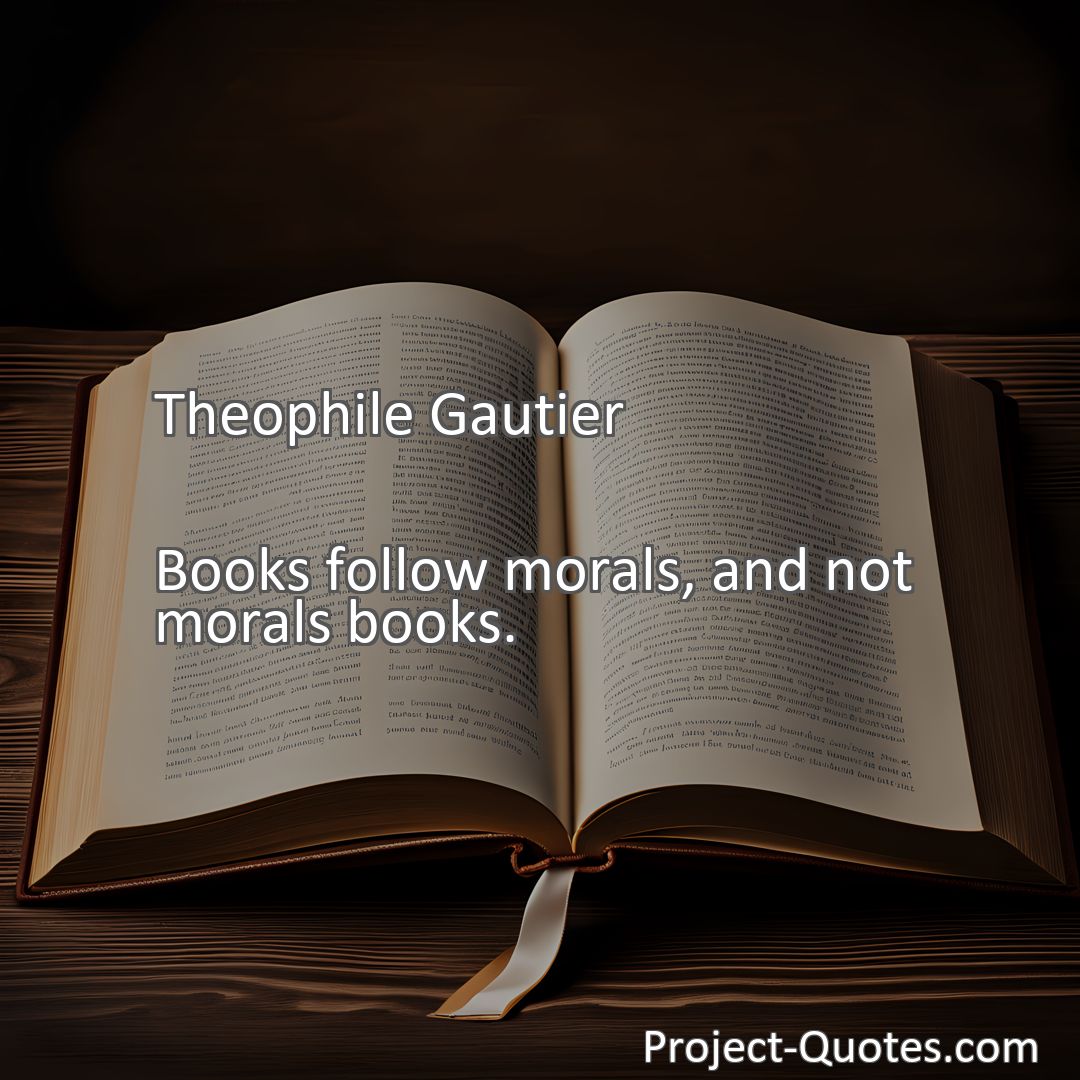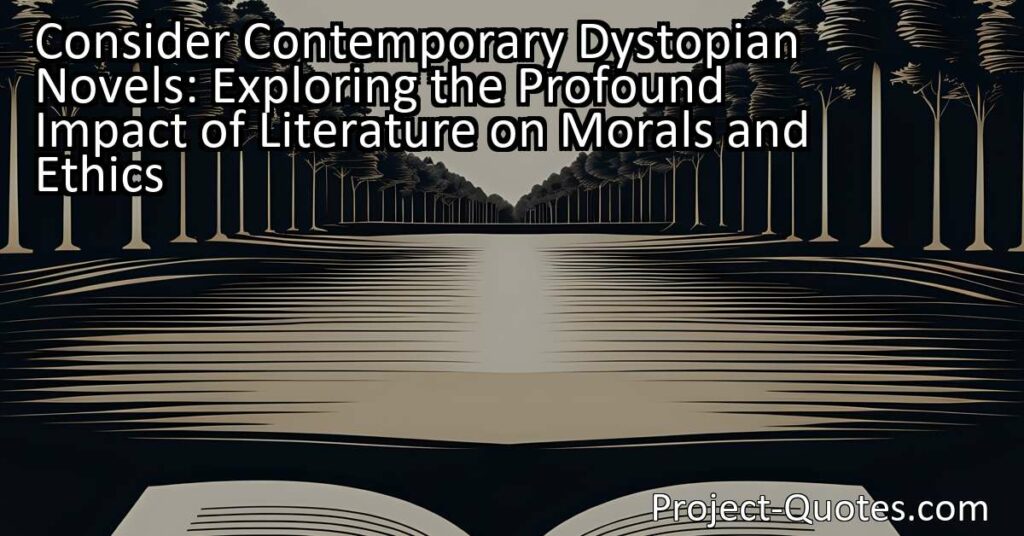Books follow morals, and not morals books.
Theophile Gautier
Consider Contemporary Dystopian Novels: Exploring the Profound Impact of Literature on Morals and Ethics: Dive into the captivating world of literature and discover how it influences our understanding of morals and ethics. From classic novels like “Pride and Prejudice” to modern dystopian tales like “The Hunger Games,” these books challenge our moral principles and inspire critical thinking. Explore the power of literature in shaping our values and broadening our perspective.
Table of Contents
Meaning of Quote – Books follow morals, and not morals books.
Books have always been a source of knowledge and inspiration for humanity. They have the power to transport us to different worlds, introduce us to diverse characters, and provide us with valuable life lessons. The words penned by authors have the ability to shape our perceptions and influence our actions. One such profound quote by Theophile Gautier states, “Books follow morals, and not morals books.” This intriguing statement invites us to reflect upon the profound impact that literature can have on our understanding of morals and ethics.
In order to grasp the essence of this quote, we must first understand what Gautier means by “books follow morals.” It suggests that literature is a reflection of the moral fabric of society. Authors, as artists, have the unique ability to capture the prevailing values, opinions, and attitudes of their time within their literary works. They intricately weave morals into the very fabric of their stories, thus giving readers an opportunity to explore ethical dilemmas and moral complexities through the lens of different characters and their experiences.
Literature serves as a mirror, reflecting the morals and values embraced by a particular society. Through books, we gain insight into the prevailing ethos of a certain era. For example, if we delve into classic novels like “Pride and Prejudice” by Jane Austen, we encounter a society where marriage was highly valued and where individuals adhered to strict social norms. The themes of love, social class, and societal expectations are woven throughout the story, allowing readers to observe how characters navigate moral and ethical dilemmas within that particular context.
Moreover, Gautier’s statement also implies that books lead the way when it comes to shaping moral principles. Literature has the power to inspire individuals, challenge societal norms, and instill a sense of empathy and understanding. By exploring various moral dilemmas and ethical nuances within the pages of a book, readers are prompted to engage in critical thinking and self-reflection. They are exposed to different perspectives and can develop a deeper understanding of the complex nature of morals.
Consider contemporary dystopian novels like “The Hunger Games” by Suzanne Collins. This series raised important questions about power, control, and the value of human life. By depicting a society divided into districts and the brutal reality of the annual Hunger Games, where children from each district must fight to the death, Collins challenges readers to reflect on their own moral principles. The story not only captivates us with its gripping plot, but also encourages us to question the moral implications of a society that prioritizes power over humanity.
Books have the capacity to mold our moral compass and lead us towards a greater understanding of ethics. They can introduce us to characters who embody virtues such as courage, kindness, and resilience. Through their triumphs and failures, we learn valuable lessons that can shape our own moral development. Think of the beloved character of Atticus Finch in Harper Lee’s “To Kill a Mockingbird.” As a father, lawyer, and moral compass of the novel, Atticus teaches us about the importance of empathy, justice, and standing up for what is right, regardless of societal norms.
However, it is vital to acknowledge that not all books are inherently moralistic. Gautier’s quote asserts that “not morals books” follow. Some authors choose to explore the complexities of the human condition without imposing a clear moral framework. In these cases, books act as a catalyst for introspection and do not necessarily provide concrete answers or moral lessons.
Literature has the capacity to challenge our preconceived notions, forcing us to question our own values and beliefs. This rebellious nature of books can be depicted through works like “Fahrenheit 451” by Ray Bradbury. Set in a dystopian society where books are banned, Bradbury’s novel explores the dangerous consequences of censorship and the importance of preserving knowledge. While the book may not adhere to a specific moral doctrine, it serves as a cautionary tale, reminding us of the risks associated with suppressing ideas and knowledge.
In conclusion, Theophile Gautier’s quote, “Books follow morals, and not morals books,” encapsulates the transformative power of literature. Books act as a reflection of societal morals and values, providing us with a window into different eras and cultures. They guide us in navigating ethical dilemmas, fostering critical thinking, and encouraging self-reflection. While some books explicitly present moral lessons, others challenge our assumptions and inspire us to question our own values. Regardless, literature holds a key role in shaping our understanding of morals and ethics, ultimately enriching our lives and broadening our perspective.
I hope this quote inspired image brings you hope and peace. Share it with someone who needs it today!


